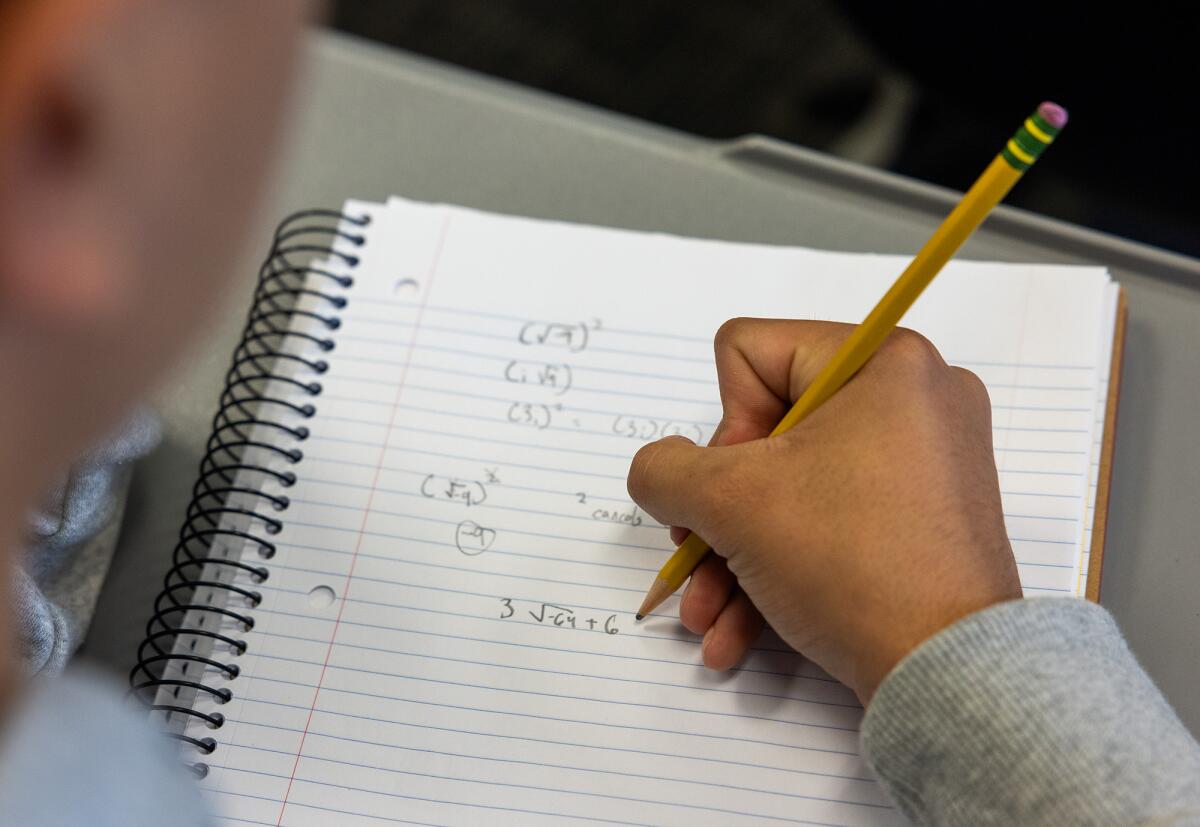Letters to the Editor: Higher math is everywhere. But should UC require all applicants to learn it?

- Share via
To the editor: As a physics professor who uses Algebra 2 (and higher math) every day, I felt compelled to respond to the debate over how much math the University of California system should require for applicants.
Math is a logical and rigorous foundation of all STEM fields. You can’t build bridges, program computers, manufacture medicines, maneuver boats, communicate with satellites or fly planes and rockets without math, which is a key means that we use to connect our creativity with reality.
On top of that, math, as a rigorous platform for analysis (starting with algebra, which involves solving for unknowns), trains our minds to solve other problems. In today’s high- tech age, which depends on myriad achievements in science and technology, we need algebra and higher math to properly use these miracles and to continue innovation in those fields.
We do need to address the failures in math education; otherwise, the U.S. will fall behind other countries to a point where it will lose its superpower status to those who are better trained at math.
Michael Pravica, Henderson, Nev.
..
To the editor: Thank you to The Times’ editorial board for the thoughtful article on flexibility on the math requirement.
I taught high school for more than 40 years, most of it in a large, urban school. As I read the editorial, I was gratified to see that the writer addressed each concern or comment it raised for me. I found the article balanced and compelling, with a largely accurate assessment of students’ interests and needs.
It motivated me to look for ways I could be involved with helping bring about some of the changes that the article advocates for.
Tassie Hadlock-Piltz, Los Angeles
..
To the editor: Data science courses? Alas, 60 years too late!
How I wish I could have had that option instead of Algebra 2 at South Gate High School in the 1950s. Mr. Carden, our Algebra teacher, would hold up my report card with mostly A’s and say ruefully, “Done it again, ruined a young lady’s card with an F.”
So, I took Algebra 2 again in summer school at Huntington Park High. I’d hoped to bring my grade up to at least a C. Wrong! I got a D, as in “devastated.”
But with the encouragement of some terrific, dedicated teachers, plus my own stubborn streak, I still made it to UCLA. I eventually graduated with an education major and became an elementary school demonstration teacher. (How I wish Mr. Carden could have seen me then!)
Ultimately I became a school psychologist. Not surprisingly, I sometimes counseled anxious kids that failing Algebra was not the end of the world. My 40-year career with the Los Angeles Unified School District was the proof.
Let’s hope a good data science course with its “application to real-life scenarios” will become an accepted alternative to the “devastating” Algebra 2 requirement. (By the way, while in graduate school, I got an A in statistics.)
Josie Levy Martin, Montecito
More to Read
A cure for the common opinion
Get thought-provoking perspectives with our weekly newsletter.
You may occasionally receive promotional content from the Los Angeles Times.









